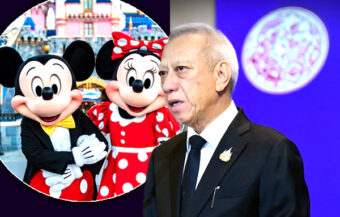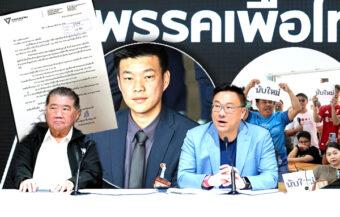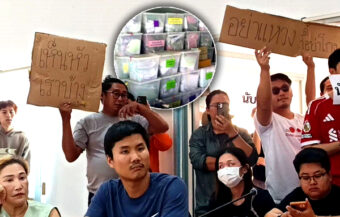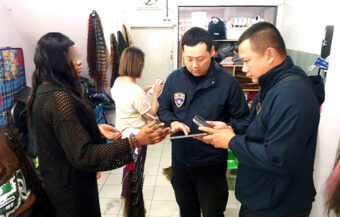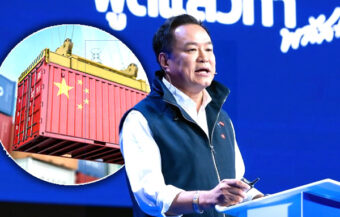Shia leader in Thailand warns of growing NGO influence in the southern conflict, urging government to reclaim control and safeguard sovereignty. He raises concerns over NGOs shaping the narrative and pushing for political changes that support separatists.
The Shia leader in Thailand has issued a warning about the powerful and emerging role of non-governmental organisations (NGOs) in the southern conflict. Saiyid Sulaiman Husaini made his views clear in a detailed article which he published online. In particular, he said the government’s reliance on these groups to facilitate dialogue with the Barisan Revolusi Nasional (BRN) was allowing the NGOs’ power not only to facilitate dialogue but also to define the agenda. The religious leader called on the government to play a more robust and hands-on role or risk having Thailand’s sovereignty diminished.
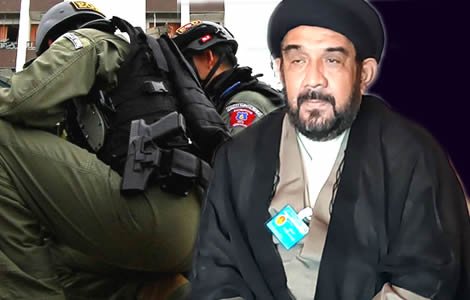
On May 14, 2015, Shia Muslim leader Saiyid Sulaiman Husaini raised concerns about foreign NGOs in Thailand’s Southern Border Provinces (SBP). His post, titled “The Deceptive Appearance of Foreign NGOs in the Problems in Thailand’s Southern Border,” warned that NGOs, while promoting human rights, might have strategic motives. These organizations, Husaini argued, may subtly intervene in the region’s conflict, reshaping political dynamics in ways that undermine Thailand’s sovereignty.
Since the resurgence of violence in 2004, the Southern Border Provinces have become a focus for international NGOs. These groups claim to promote peace, human rights, and justice.
Husaini questions the neutrality of foreign NGOs and their role in shaping the conflict’s political narrative
However, Husaini questioned whether their involvement was truly neutral. He pointed out that some NGOs have taken a much more active role in the conflict.
They have shaped perceptions of the conflict and influenced its resolution, often creating new political realities in the process. Many NGOs, including Human Rights Watch, Amnesty International, and the Centre for Humanitarian Dialogue (HD), have maintained an ongoing presence in the region.
They conduct research, offer training, and facilitate discussions between the Thai government and separatist groups like the BRN (Barisan Revolusi Nasional). These organizations claim to be impartial mediators.
However, Husaini suggested that their actions go beyond simple peacebuilding. He argued that they are actively helping to craft the political narrative.
One of Husaini’s central points was that NGOs, by framing the conflict in certain terms, have created an “interpretive structure.” This structure portrays the Thai government as an oppressive force and the separatists as victims.
In doing so, it shifts the global narrative, diminishing the legitimacy of the Thai state. Meanwhile, the BRN gains political traction. By focusing on human rights abuses by the Thai state, NGOs inadvertently promote the separatists’ political agenda.
Foreign NGOs under scrutiny for downplaying BRN violence and positioning separatists as victims
Husaini also highlighted the imbalance in how violence is portrayed. He criticized how NGOs focus on human rights violations allegedly committed by the Thai government. These NGOs often downplay or fail to address violent actions committed by the BRN.
Bombings, shootings, and youth recruitment into the separatist movement are frequently explained as consequences of state repression.
By doing so, the actions of the BRN are framed as justified, rather than criminal. This reorientation, Husaini believes, strengthens the BRN’s position, making them appear more as political actors and less as armed insurgents.
The Centre for Humanitarian Dialogue (HD) is one NGO that Husaini scrutinized in detail. HD has been a significant player in the peace process, facilitating talks between the Thai government and the BRN.
The organization presents itself as a neutral party, but Husaini pointed out that its long-standing access to both sides—BRN and the Thai security forces—allows it to shape the peace process.
In Husaini’s view, HD’s involvement goes beyond mere mediation. By facilitating negotiations, HD holds the power to control the terms and direction of peace talks.
Role of foreign NGOs in transforming BRN into a political movement and shifting international perception
Husaini also noted how some foreign NGOs have played a direct role in helping the BRN transition from an armed group to a political movement. European NGOs, in particular, have supported the creation of a new generation of BRN leaders.
These leaders are skilled in international diplomacy, speak English, and are familiar with global political mechanisms. They are now capable of presenting the BRN’s demands on the world stage, reframing the group’s cause as a political one rather than an insurgent one.
Despite these concerns, the Thai government continues to allow foreign NGOs to operate in the region. Husaini suggested that this was due to the Thai government’s desire to present itself as open and neutral to the international community.
However, he pointed out that the Thai government’s willingness to allow NGOs to engage in the peace process also has its risks. The government lacks the necessary skills to manage the negotiation process effectively, so it often relies on foreign NGOs for facilitation.
Yet, by doing so, it risks surrendering control over the direction of negotiations and the political future of the region.
Husaini questions foreign NGOs having simultaneous access to both the BRN and Thai security forces
Husaini raised several key questions about the role of foreign NGOs in the conflict. Why, he asked, do these organizations have access to both the BRN and the Thai security forces? If they were truly neutral, they would not have simultaneous access to both sides.
Husaini also questioned the true intentions of these NGOs. Are they really seeking a peaceful resolution, or are they advancing a broader political agenda that benefits the BRN?
These questions, he argued, must be addressed if the Thai government is to protect its sovereignty and regain control over the peace process.
Foreign NGOs advocating for drastic political changes and external intervention in Thai Southern Border Provinces
The involvement of foreign NGOs in the region has had other implications as well. Some organizations have pushed for drastic changes in the political structure of the southern border provinces. For instance, there have been proposals to create a “special administrative region” for the region.
This region would have its own legal system, constitution, and even religious courts. Husaini argued that such proposals would erode the sovereignty of the Thai state and provide the BRN with greater political leverage.
Foreign NGOs have also advocated for international mediation in the peace process. Husaini noted that some NGOs have called for the involvement of the United Nations, the European Union, or the Organization of Islamic Cooperation (OIC) in negotiations.
He warned that this level of external intervention could further undermine Thailand’s authority over the provinces. Such intervention would not only weaken Thailand’s control but also give the BRN an international platform to present their demands.
Husaini highlights the risks of foreign NGO involvement in Southern Border Provinces. Action is needed
Husaini’s analysis suggests that foreign NGOs are not simply neutral actors in the southern conflict. Instead, they are actively influencing the conflict’s political landscape. By promoting a narrative that aligns with the separatist cause, these NGOs are contributing to the erosion of Thailand’s sovereignty.
They may be advancing an agenda that seeks to transform the region’s political structure to better suit the separatist movement. This, Husaini argues, poses a significant threat to Thailand’s future control over its southern provinces.
Finally, Husaini’s critique warns the deeper involvement of NGOs may have unintended consequences.
Prime Minister calls for less inflamed rhetoric but promises to hunt down insurgency killers in the South
Insurgent Barisan Revolusi Nasional (BRN) behind firebomb spree in the South raises the stakes in talks
By shaping the narrative and advocating for political changes that benefit the BRN, these NGOs are contributing to the political transformation of the region. Husaini warns that if the Thai government does not take action to counter this influence, it may lose control of its sovereignty and the political future of the South.
Join the Thai News forum, follow Thai Examiner on Facebook here
Receive all our stories as they come out on Telegram here
Follow Thai Examiner here
Further reading:
Lawyer calls for prosecution of top officials in the Tak Bai case as PM rules out Emergency Degree
Bomb attacks in Narathiwat just a week before the Tak Bai massacre anniversary injures eight
Pheu Thai MP and former army commander in the South out of the country safe from an arrest warrant













